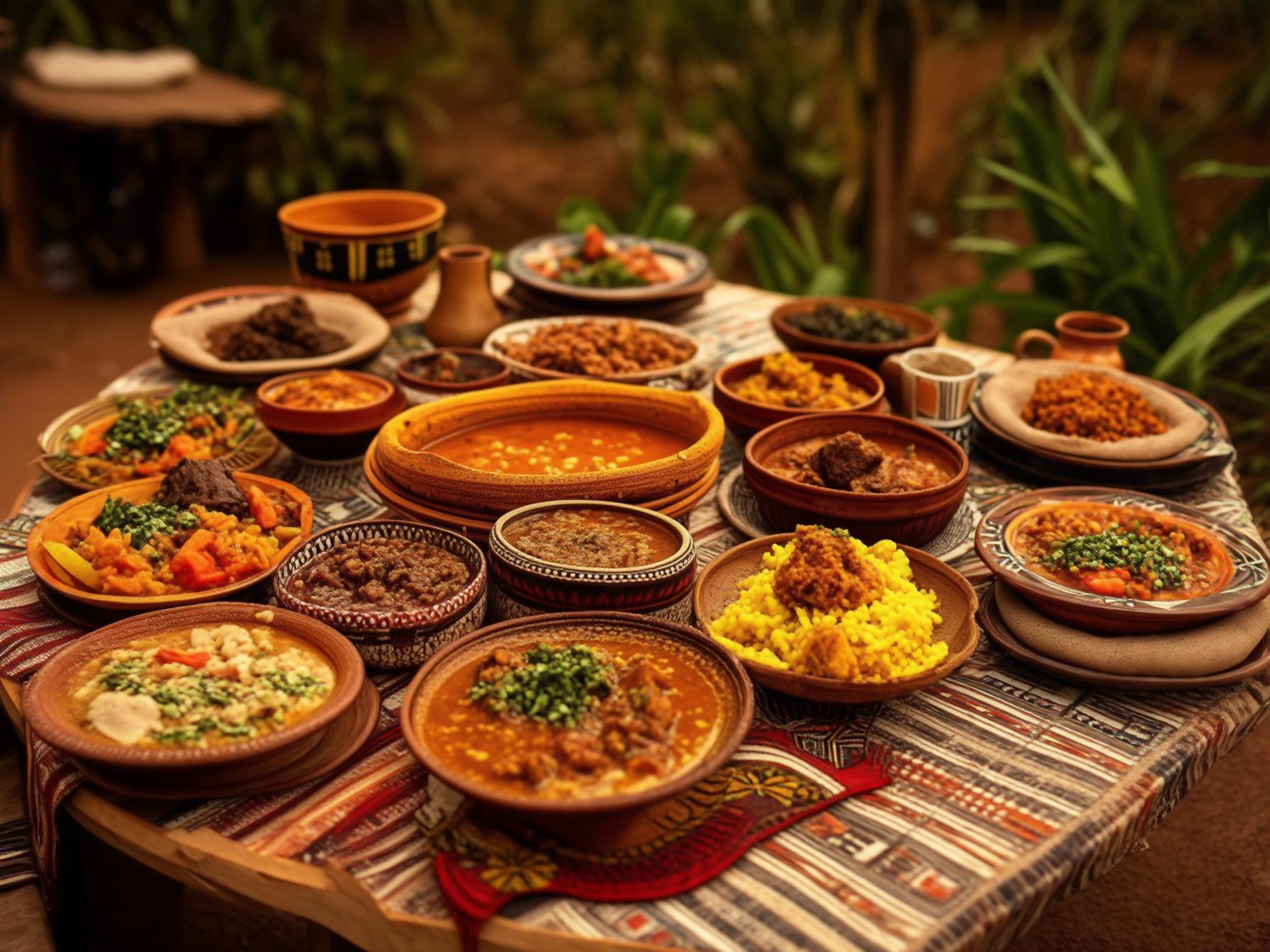A Culinary Journey Exploring Traditional South Sudanese Cuisine in Juba
At the heart of South Sudan's rich cultural tapestry, Juba's vibrant culinary scene offers a gateway to exploring traditional flavors that reflect the nation's heritage and diverse ethnic landscape.
Discover Affordable Travel Options with AI Travel Agent
Looking for cheap flights to Juba, South Sudan? The Booked AI Travel Agent simplifies your search, offering a comprehensive list of flights tailored to your budget. As an AI travel service, we prioritize cost-efficiency alongside memorable experiences.
Book Budget-Friendly Hotels in Juba, South Sudan
Our trip planner app provides a curated selection of hotels in Juba, South Sudan, guaranteeing you find budget-friendly accommodations without compromising on quality. Whether you aim for luxury stays or economic comfort, our options cater to all.
Savor Local Cuisine at Top Restaurants in Juba, South Sudan
Experience the tantalizing flavors of South Sudan by exploring traditional restaurants and local eateries in Juba. Our app guides you to both high-end dining experiences and delicious cheap eats for every culinary enthusiast.
Engage in Exciting Activities with Our AI Travel Planner
From thrilling adventures to cultural explorations, our AI travel planner offers a range of activities in Juba that cater to all interests. Enjoy the city's vibrant lifestyle and make the most of your stay with our thoughtfully curated itineraries.
Conclusion
Ready to experience Juba, South Sudan? Let the Booked AI Travel Agent guide you through booking flights, finding hotels, and planning activities. Embrace an authentic travel experience filled with local charm and affordable options.



Frequently Asked Questions
The best time to visit Juba is during the dry season, which typically runs from November to March. During these months, the weather is more pleasant with lower humidity and less rainfall, making it ideal for outdoor activities and exploring the city.
Juba, the capital of South Sudan, offers several attractions for visitors:
- Juba Stadium: A key venue for local sports and events.
- Juba Nile Bridge: A remarkable engineering structure offering scenic views of the Nile River.
- John Garang Mausoleum: A site dedicated to the former South Sudanese leader and a place of national significance.
- All Saints Cathedral: A prominent place of worship with historical importance.
- Nile River: Enjoy boat rides or a relaxing walk along its banks.
- Local Markets: Experience the vibrant culture and buy local crafts and goods.
- Avoid Travel at Night: Limit movement after dark and stay in secure accommodations.
- Stay Informed: Keep updated with local news and travel advisories.
- Use Reputable Transport: Opt for reputable and secure transportation services.
- Stay in Groups: Travel in groups when possible for added safety.
- Keep Valuables Secure: Do not display expensive items and keep belongings secure.
- Know Emergency Contacts: Have local emergency contacts and embassy information readily available.
- Respect Local Customs: Familiarize yourself with and respect local customs and laws.
In Juba, you can enjoy a variety of local food specialties that reflect the rich culinary traditions of South Sudan. Some popular dishes include:
- Asida: A staple food made from wheat, sorghum, or millet flour, typically served with a sauce or stew.
- Kisra: A traditional flatbread made from fermented dough of sorghum or wheat, often served with various accompaniments.
- Bamia: A hearty okra stew, commonly prepared with meat and served with rice or kisra.
- Ful Medames: A dish made from fava beans, seasoned with spices, and often eaten for breakfast.
- Shaiyah: Grilled or fried meat, usually goat or lamb, seasoned with spices and served with fresh vegetables.
- Atekilt wat: A flavorful vegetable stew made with carrots, cabbage, and potatoes.
These dishes offer a taste of the diverse and vibrant food culture in Juba.
Traveling to Juba on a budget can be a rewarding experience. Here are some tips to help you save money:
- Accommodation: Consider staying in budget guesthouses or hostels, which are often cheaper than hotels. Alternatively, look for short-term apartment rentals.
- Food: Eat at local joints and markets where food prices are lower. Trying street food can also be an economical and enjoyable way to experience local cuisine.
- Transportation: Use public transportation or shared taxis instead of private hires. Walking can also be a great way to explore the city and save money.
- Activities: Take advantage of free or low-cost activities, such as visiting public parks and exploring local markets. Joining free walking tours can offer insights into the city without spending much.
- Currency Exchange: Be aware of the best exchange rates and consider exchanging money before arrival to avoid high fees at airports or hotels.
- Bargaining: Practice bargaining in local markets to get better deals, as it is a common practice in many regions.
If you're planning a trip to Juba, consider the following accommodation options:
- Hotels: There are several international-standard hotels offering amenities like pools, restaurants, and gyms. Check for security measures, as these are important factors in Juba.
- Guesthouses: These offer a more home-like environment and are often cheaper than hotels. They can be a good choice for longer stays.
- Security: Ensure that your chosen accommodation has robust security measures in place, such as gated compounds and security personnel.
- Location: Opt for central locations to minimize travel time and avoid traffic congestions.
Check reviews and possibly get recommendations from reliable sources before making a booking.
.png)



